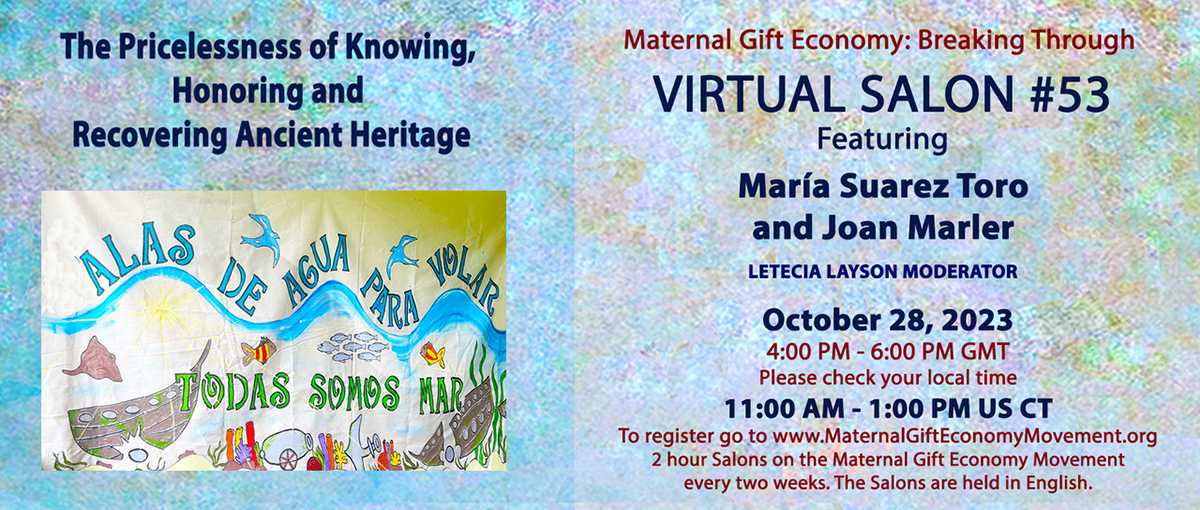Maternal Gift Economy: Breaking Through -
Ongoing Salons
Every two weeks

Salon #53 - The Pricelessness of Knowing, Honoring and Recovering Ancient Heritage
October 28, 2023
With Maria Suarez Toro and Joan Marler. Moderated by Letecia Layson.
This salon will address the recovery of ancient heritage and a renewal of cultural wholeness carried within the memory of artifacts, oral history, and myths. With Maria Suarez Toro and Joan Marler.
A project of community archaeomythology is taking place today in Costa Rica’s Southern Caribbean by a non-profit association of youth scuba divers—Ambassadors of the Sea—co-founded by Dr. Maria Suarez Toro. In this project, the search for the identity of two shipwrecks in the Cahuita National Park (CNP) has led to the hypothesis that they are the remains of two Danish slave ships that ran aground in 1710 while filled with African enslaved people. The identity of these ships is in the process of being scientifically confirmed after eight years of organized expeditions by Ambassadors of the Sea comprised of Afro, Indigenous (Bribri), and Mestizo youth. These young divers are the descendants of countless generations of fisher folk who have transmitted the legacy of this untold story preserved at the bottom of the sea.
In their multidisciplinary research, these young people utilize a citizenship science that incorporates local mythologies, transmitted by their grandparents preserving multi-generational knowledge of the ocean’s waters and its ancient secrets. Their investigations combine the scientific method of underwater archaeology together with their ancestral knowledge about the complex life-forms of the reefs that have preserved the underwater objects of the ships they study. The wrecks are located in the ocean very near Cahuita Point in the Park where the Afro descendant population in Cahuita has always claimed that they see a light in the darkest night.
Maria Suárez Toro has given that light a literary, ancestral, matriarchal name —Tona Ina — meaning “sea light” in Yoruba.Tona Ina is conceived as an ancestral, matriarchal grandmotherly character who tells the saga of the search and discovery of the identity of the ships. The citizenship science of Community Archaeomythology reveals local evidence of the presence of their historic culture underwater, as well as precious traces of the ancestral roots that engender the recovery of their holistic identity.
Having a Yoruba name for the presence of the “sea light” in this strategic location is inspiring community efforts toward acultural renaissance within Cosa Rica’s southern Caribbean area. The significance of Tona Ina is inseparable from an awakened memory of the ancient centrality of women in prepatriarchalsociety, before the arrival of the slave ships and systematic European colonization. The joyful celebration of Tona Ina today and the creativity and respect for women, children, and the cultural balance she inspires is celebrated through music, dance, theater, parades, and artwork in multiple media by the entire community—women, men, and children.
Archaeomythology, as coined by Marija Gimbutas, and its significance in this dynamic context, will be discussed in the course of the Salon.
